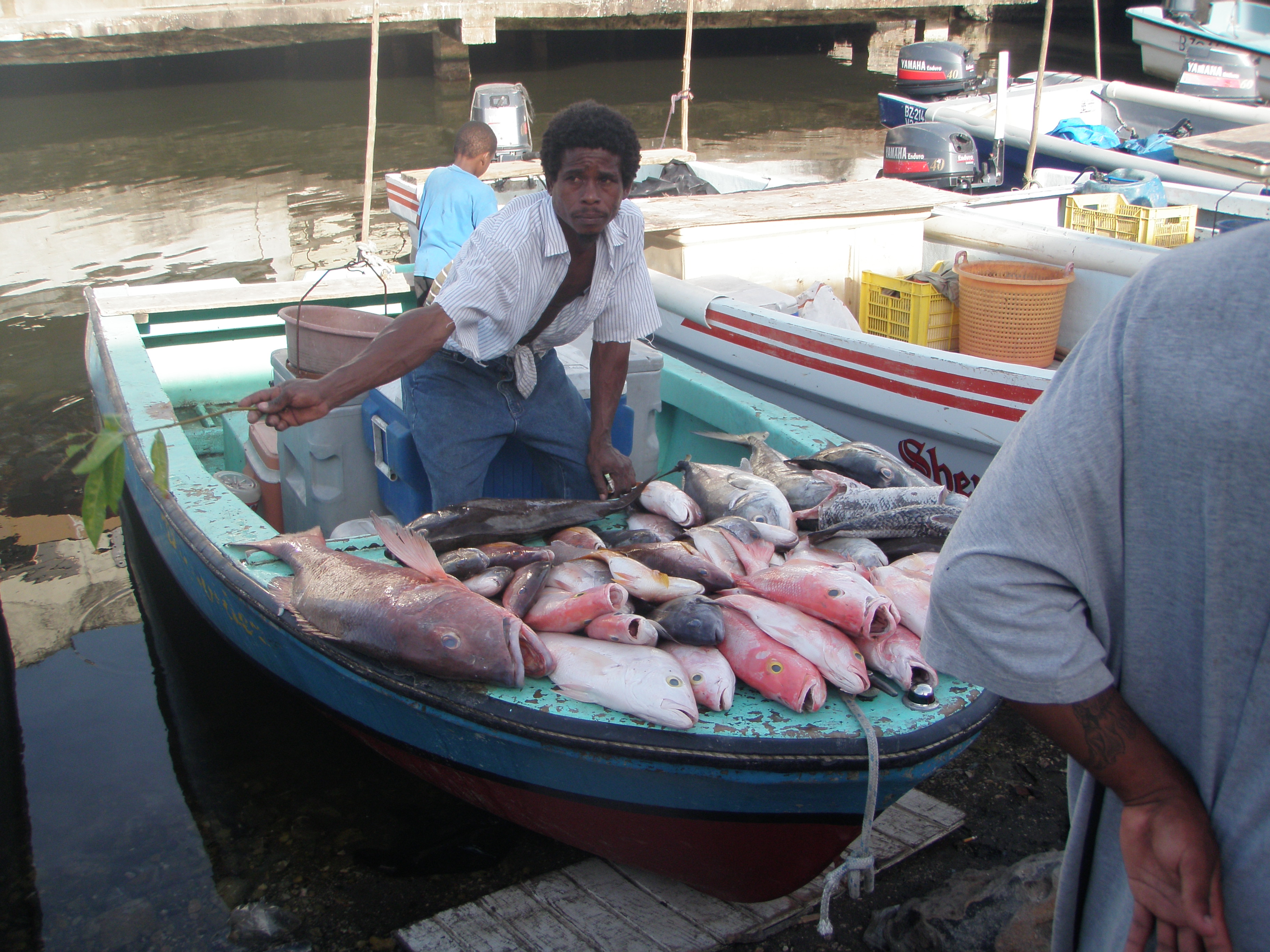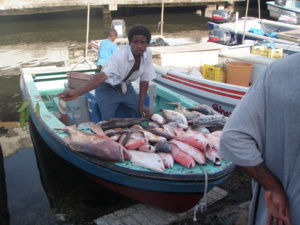In keeping with plans drawn up by the Technical Centre for Agriculture and Rural Cooperation, Caribbean nations have begun working on a plan that makes their fisheries ‘climate smart’, so as to effectively manage and procure its marine food supplies.
“With the projections, we're looking at almost total loss of our corals. For us in the Caribbean our reefs are important, not from the perspective of tourism, but from the perspective of livelihoods when you consider fisheries. [Being climate smart will] enable the sector to continue to contribute to sustainable development, while reducing the vulnerability associated with the negative impacts of climate change,” said Dr. Orville Grey Olu Ajayi, CTA’s senior programme coordinator.
He went on to add:
“Climate-smart fisheries require improving efficiency in the use of natural resources to produce fish, maintaining the resilience of aquatic systems and the communities that rely on them,”
Marine resources are critical for the sustenance of human habitation in the Caribbean wherein an estimated 182,000 people live and are directly dependent on it. Many fishermen have reported smaller size of fish in their nets, which marine scientist says, are signs of our times and not just the result of degradation of habitat and overfishing.
Fish is just one aspect of the problem, the other is bleaching of coral bleaching. Peter A Murray, the manager for the Caribbean Regional Fisheries Mechanism (CRFM) believes that the effects of climate change can already be seen in the region’s fisheries sector. More and more seaweed is being seen in the fishing grounds, and coral reefs are being bleached because of global warming. Increased salination of the sea is also promoting the spread of invasive species and along with devastating hurricanes, species which were once native to the region are gradually being wiped out.
Several initiatives have already been launched by the CTA to “tackle the impact of agriculture on small-scale producers” – among them small-scale fishers and fish farmers – in a way that will facilitate the construction of “resilient agricultural systems”. In fact, programs and efforts for resilience towards climate change have commenced since 2010 and the CTA has been working very closely with the CRFM and the Caribbean Community Climate Change Centre (5Cs).
Although there are efforts to empower local fisher folks to share and access information that will enable them to participate in matters of policy development on which their livelihood is dependent on, not only in local matters but on regional levels too, however they are still either unwilling or are not ready.
Environmentalists are upping the ante by wanting that several species be brought into the umbrella of environmental protection. Case in point, WildEarth Guardian, the U.S based NGO, petitioned and took up the case of the Queen Conch, which under U.S laws is treated as an endangered species, however, in the Caribbean, it is critical to the trade of local economies. The locals are thus dragging their feet on reaching an agreement as to what is endangered and what is not. What they fail to realise is that they are living on borrowed time, especially in the age of climate change and global warming.
The key to a successful agreement on implementing frameworks on Climate Change is the participation of the fishing community. They are the stakeholders. Unless the beneficiaries realise the purpose and benefits of the overall strategy, implementation will be delayed and difficult.
References:
http://www.ipsnews.net/2015/03/caribbean-community-climate-smarting-fisheries-but-slowly/
“With the projections, we're looking at almost total loss of our corals. For us in the Caribbean our reefs are important, not from the perspective of tourism, but from the perspective of livelihoods when you consider fisheries. [Being climate smart will] enable the sector to continue to contribute to sustainable development, while reducing the vulnerability associated with the negative impacts of climate change,” said Dr. Orville Grey Olu Ajayi, CTA’s senior programme coordinator.
He went on to add:
“Climate-smart fisheries require improving efficiency in the use of natural resources to produce fish, maintaining the resilience of aquatic systems and the communities that rely on them,”
Marine resources are critical for the sustenance of human habitation in the Caribbean wherein an estimated 182,000 people live and are directly dependent on it. Many fishermen have reported smaller size of fish in their nets, which marine scientist says, are signs of our times and not just the result of degradation of habitat and overfishing.
Fish is just one aspect of the problem, the other is bleaching of coral bleaching. Peter A Murray, the manager for the Caribbean Regional Fisheries Mechanism (CRFM) believes that the effects of climate change can already be seen in the region’s fisheries sector. More and more seaweed is being seen in the fishing grounds, and coral reefs are being bleached because of global warming. Increased salination of the sea is also promoting the spread of invasive species and along with devastating hurricanes, species which were once native to the region are gradually being wiped out.
Several initiatives have already been launched by the CTA to “tackle the impact of agriculture on small-scale producers” – among them small-scale fishers and fish farmers – in a way that will facilitate the construction of “resilient agricultural systems”. In fact, programs and efforts for resilience towards climate change have commenced since 2010 and the CTA has been working very closely with the CRFM and the Caribbean Community Climate Change Centre (5Cs).
Although there are efforts to empower local fisher folks to share and access information that will enable them to participate in matters of policy development on which their livelihood is dependent on, not only in local matters but on regional levels too, however they are still either unwilling or are not ready.
Environmentalists are upping the ante by wanting that several species be brought into the umbrella of environmental protection. Case in point, WildEarth Guardian, the U.S based NGO, petitioned and took up the case of the Queen Conch, which under U.S laws is treated as an endangered species, however, in the Caribbean, it is critical to the trade of local economies. The locals are thus dragging their feet on reaching an agreement as to what is endangered and what is not. What they fail to realise is that they are living on borrowed time, especially in the age of climate change and global warming.
The key to a successful agreement on implementing frameworks on Climate Change is the participation of the fishing community. They are the stakeholders. Unless the beneficiaries realise the purpose and benefits of the overall strategy, implementation will be delayed and difficult.
References:
http://www.ipsnews.net/2015/03/caribbean-community-climate-smarting-fisheries-but-slowly/






